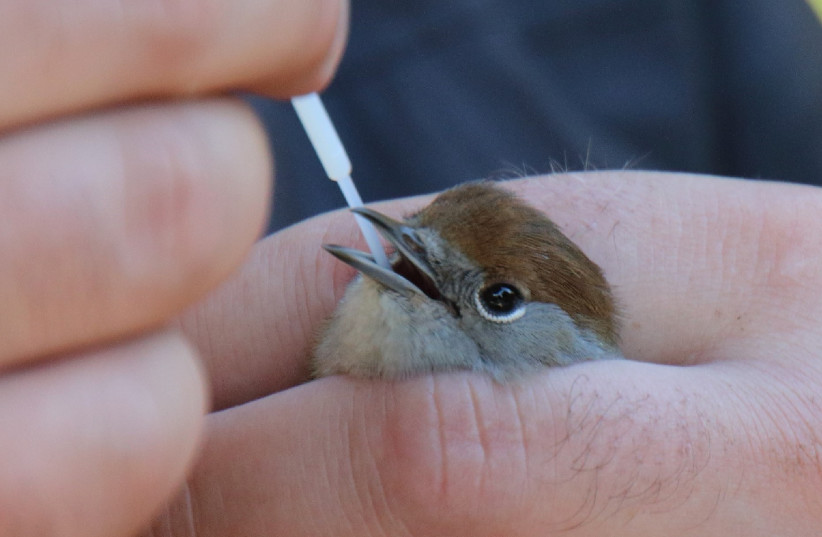The Health Ministry revealed on Tuesday that another person has died of West Nile virus, bringing the death rate up to three.
In addition, they revealed concerns over an additional person who passed away having contracted the virus before their death.
So far, at least 42 people have been diagnosed with West Nile virus in Israel since the latest wave began, of which 36 have been hospitalized and five were intubated.
Sheba Medical Center pronounced the third person dead after two passed away at Rabin Medical Center - Beilinson Campus.
All patients are from central Israel.
West Nile virus: Q&A
West Nile fever disease is caused by infection with a virus that resides in the wild among birds. The course of the disease begins with mosquitoes that bite birds and transmit the virus to them, which continues to live in the birds' bodies.
Then the mosquitoes bite them again and transmit the virus to animals and humans.
When did West Nile virus first appear in Israel?
The virus has been widespread in Israel for many years and tends to appear in peak waves in the summer, according to Health Ministry data.
The first documentation of West Nile fever as an outbreak was registered in Israel in 1950-1954 and in 1957 a second outbreak was recorded.
In the seventies and eighties, increased activity of the virus was recorded again. In 1997, the disease was diagnosed in poultry.
In 2000, there was an outbreak in Israel with more than 400 cases of the disease. From 2001 until today, dozens of cases have been diagnosed every year.
What is the infection rate in Israel?
Every year several dozen patients are reported in Israel, most of them in their forties or older.
Which areas in Israel are most affected by West Nile virus?
The infected mosquitoes are mostly found in the Sharon, Hadera, Pardes Hana-Karkur, Binyamina, and Caesarea areas.
However, cases of infection have been reported throughout the country from north to south. In the current case, the cases were recorded in north Tel Aviv.
What are the symptoms of West Nile virus?
This is a mild disease for the most part, but it can also cause severe morbidity and mortality. The infection usually passes without symptoms.
In some cases, a flu-like illness appears which goes away on its own. Symptoms include fever, headache, weakness, joint and muscle pain, conjunctivitis, rash and sometimes nausea and diarrhea.
In about 1% of cases the disease becomes severe, with neurological signs corresponding to meningitis, acute encephalitis or acute flaccid paralysis.
The incubation period is usually 7 to 14 days, and in exceptional cases three to 21 days. The disease does not pass from person to person.
What do you do if you get a mosquito bite?
Most mosquitoes in Israel are not infected with the reagent and therefore there is no reason to panic. In the event of an allergic reaction to a bite, with swelling, redness and itching, or the appearance of signs of infection with redness, local heat, pain or high fever, or in the event of the appearance of flu symptoms after a bite - seek medical advice.
Is it possible to get infected from a person infected with a virus?
No, the disease does not pass from person to person.
Who is at risk?
The risk of infection is very low. At high risk are patients with chronic diseases that suppress the immune system, cancer patients with poor immune systems, infants and the elderly.
Can dogs and cats be infected and contagious?
According to the medical literature, the virus is transmitted in nature only by infected mosquitoes, and there is no evidence to suggest infection from an animal to humans.
If I have been infected before, can I be infected again?
Infection with the virus does not immunize against it, and therefore even those who have been infected with the West Nile virus in the past may become infected again.
Is there a vaccine against the virus?
No. However, in 2015, a vaccine that was proven effective in an experiment on laboratory animals entered the clinical trial phase.
How is the treatment carried out?
Since there is no treatment against the disease, the only way to deal with it is to prevent mosquito bites through the use of mosquito repellents, window screens and appropriate clothing.
What are the warning signs that require a visit to the emergency room after a mosquito bite?
* Prolonged fever for over a week* Repeated vomiting anytime one attempts to drink* Failure to urinate for more than 10 hours* Rapid breathing (over 20 breaths per minute in an adult, over 40 per minute in a child)* Decreased state of consciousness* Aversion to light* Headaches that are unusual in intensity or that wake you up from sleep

